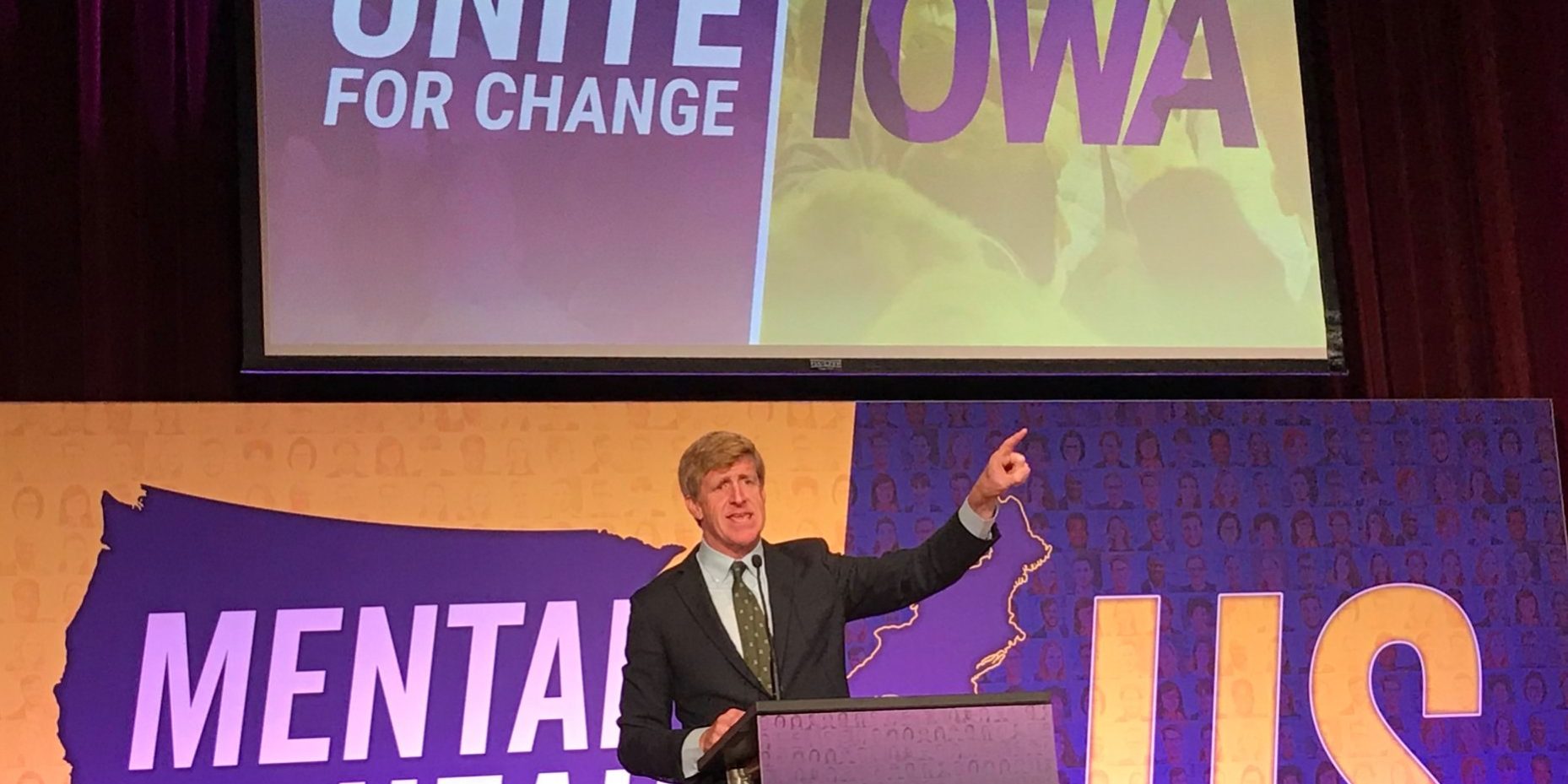At its most essential, mental health advocacy has one main goal: saving and improving lives by changing policy. This means that at federal, state, and local levels, we need policymakers to believe in our goals for mental health reform as much as we do. When the brain health advocacy community has the opportunity to affect policy reform, our work becomes that much more important. This is why the Mental Health for US Unite for Change Rally in Iowa this past week was so important. The Unite for Change Rally was, as David Lloyd, Senior Policy Advisor at The Kennedy Forum said, “a way to make sure every American in this country receives the mental health and addiction treatment they need, and don’t go broke in the process.”
With the presidential election around the corner and the primaries close at hand, it is urgent that the candidates know the severity of the suicide and addiction epidemic. Mental Health for US held the Unite for Change Rally to improve candidate literacy on these issues, so policymakers will make mental health a priority once they are in office. With overdose and suicide deaths at an all-time high, this long-term, systemic change is not coming a moment too soon.
Mental Health for US is an organization with three main pillars: prevention, access and intervention, and recovery. The speakers at the rally took on these issues and more. Hosted by Peggy Huppert, Executive Director of NAMI Iowa, it wasn’t long before our friend and fearless leader Patrick Kennedy took the stage for introductory remarks, asking the addiction and mental health communities to act as one voice in this election. The speakers that followed also shared Patrick Kennedy’s vision of pulling together these two communities in a single, unifying call for change.
“Addiction is addiction is addiction,” Kennedy said. “It’s the same disease!” The crowd clapped in agreement. Scholar and political scientist Norman Ornstein, of the American Enterprise Institute, elevated us with his encouraging words. “I’ve seen what people can do,” he said. “We can save lives, we can save money. If we have the right voice, we can change lives and change reality.” He also invoked the Parkland kids as an example of how young people have the power to move the ground on these issues. After experiencing personal tragedy firsthand, Norman Ornstein is now working to provide comprehensive care to people with serious mental illness, while fighting to change the way they are treated by our criminal justice system.
We also heard from NAMI Manager of State Policy Brandon Graham, Connor Jobes, Manager of Federal Policy at the American Federation for Suicide Prevention, Leslie Carpenter, and Marty Parrish. Kevin Atwood spoke about founding Foster’s Voice, a non-profit focusing on suicide prevention, after their own son died by suicide following a long struggle with brain illness. Megan Vranish, Project Director of Abbe Mental Health Center, emphasized how, “we need to meet people’s needs in person-centered, creative ways.”
A few of these creative ways were highlighted in Friday’s program, and they both involved the media. We saw a clip of Bedlam, a new documentary that explores effective methods of triaging care for individuals with serious mental illness. We also watched a few minutes of “Last Day,” a new podcast from Lemonada Media that confronts social crises through an empathic, personal lens, one episode at a time.
The Unite for Change Rally was a sobering look at our current system, but it was also a groundbreaking step towards change. Every single advocate who took the stage is committed to a future where psychiatry receives the same funding as oncology, and where people living with brain disorders receive the same social support and legitimacy as cancer patients. After an inspiring evening like Friday, such a future finally seems within reach.







